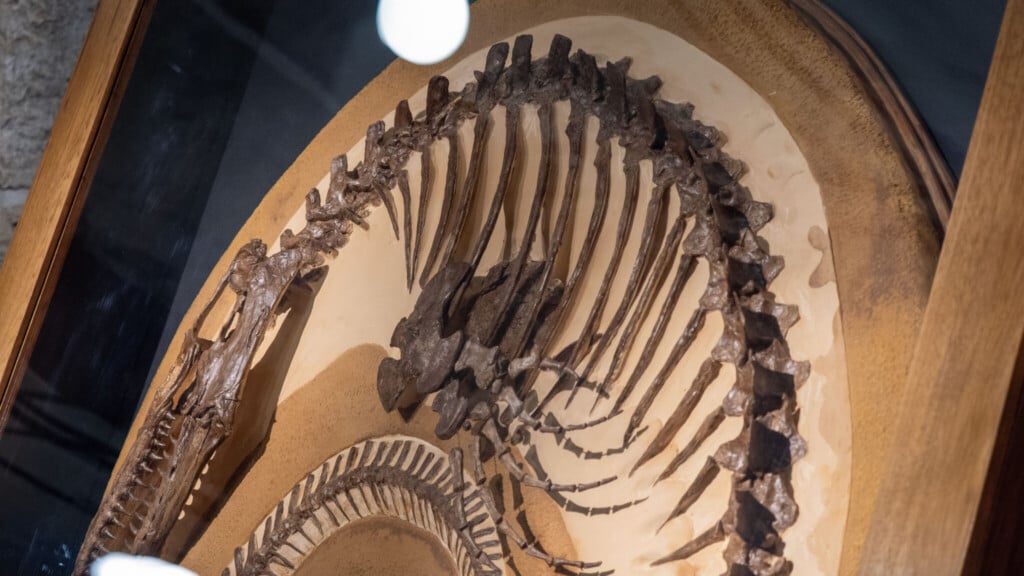New Blood

Sitting comfortably at the Cornbread Café with founding Bloodstone member Harry Williams, newest addition Donald Bell and longtime manager Larry Durham, it’s easy to imagine life during the group’s heyday. Best known for the single “Natural High,” which in 1973 soared into the pop Top 10 and to No. 1 on the R&B chart, Bloodstone is one of the few Kansas City groups that can actually point to platinum and gold records.
Bloodstone’s roots are firmly planted in Kansas City. “We all started in high school together, Central High School, in 1962,” Williams says. “[Founding members] Charles McCormick and Charles Love had a group. At that time, we were competing in local talent shows against each other. I wanted to be part of their group, but they looked at me and said, ‘You can’t sing.'”
Undaunted, Williams formed his own group, which included Roger Durham, Larry’s brother. “Larry is my idol, and he had a singing group, too — upperclassmen,” he says. “They taught us the harmonies, and that got us out there really fast.”
A couple of guys in the group just wouldn’t rehearse, so Williams showed them the door. “I found McCormick and Love, and we formed a singing group called the Sinceres,” he remembers. “I was a Temptations fanatic, and that’s where our harmonies come from. Man, we used to practice for hours and days until we got it down so perfect you could close your eyes and Charles McCormick would sound like Eddie Kendricks.”
After adding guitarist Willis Draffen and drummer Melvin Webb, Bloodstone tore up the city. “We started playing in nightclubs like O.G.’s, Ollie Gates’ place at 31st and Indiana, a real hotspot,” Williams says. “We couldn’t get into the clubs. We weren’t old enough, but Mr. Gates invited us once to a talent night. First prize was fifty dollars. We came in on talent night, and from then, we would win every Thursday night. Local talent ’round the city said, ‘Man, we’re not going to be on the talent show — Harry and them are going to be there.’ Mr. Gates said, ‘Tell you what I’ll do — I’ll pay you a salary to play Thursday nights.’
“We got as big as we could here and left for Los Angeles in 1968,” Williams continues. “When we first got to L.A., we didn’t know anybody, and it was tough. We used to split two eggs among four people — that’s just how serious it was, but we hung in there. In 1972, our manager at the time asked if we wanted to go to London. We looked at him and around at each other and said, ‘London … the only way we’re going to go is if you get us a round-trip ticket.’
“We didn’t know we needed a work permit to work in England,” Williams recalls. “We got into customs, and we said to ourselves, ‘We’re going to go in as college students.’ Willis and some of the others had brought instruments, and we told the customs officers, ‘No, we didn’t come to play — we just want to have fun.’ They said, ‘You have all these instruments just to entertain yourselves?’ They detained us for about eight hours in customs. We got through, but our passports said we couldn’t play, paid or unpaid.”
In spite of the red tape, the band’s big break soon arrived when Al Green came to town. Bloodstone’s manager talked the show’s promoter into letting the band play, though its members wouldn’t be paid for the performance.
“We went on right before Al Green,” Williams says. “We went out there, and we just had our rhythm section, with Sly and the Family Stone’s ‘I Want to Take You Higher’ as our knockout song. At that time, we were wearing the boots and knit caps and brother, we turned it out. We went offstage, and they gave us a standing ovation. It took them more than an hour to calm the crowd down so Al Green could come on.”
That show led to Bloodstone’s recording contract with Decca/London Records and its first big success, the album Natural High. Soon after, Bloodstone’s career peaked when it met Berry Gordy and signed to Motown. Since then, the group has worked through rugged times, persevering after the deaths of several members, including Webb, Roger Durham and, most recently, Draffen, whose guitar work was part of Bloodstone’s signature sound.
“Mr. Draffen’s passing was a great loss not only to Bloodstone but to Bloodstone’s fans,” Bell says. “It’s ironic that I would go pay my respects to Willis and bump into Charles Love. He said, “You’ve been on my mind. I’d like you to audition for the group.’
“I have that same ethic, to practice and work and study at the craft,” Bell explains. “All of the Bloodstone material is the stuff I grew up on. These guys are such professionals; all I have to do is be professional, too. For me, it’s a great honor to stand next to these guys on the stage.”
Williams is proud of what Bloodstone has accomplished, but he’s not one to rest on past glory. “We have fought really hard — we always wanted to be number one,” he says. “I’m an old person now, and I still want to be number one.”
While Bloodstone has worked with many soul legends, including Marvin Gaye, the Supremes, the O’Jays and others, this will be the group’s first time playing with James Brown. Asked what to expect from the show, Bell leans back, and a grin spreads across his face, as if he’s anticipated this question. “Excellent old school at its best,” he says. He picks up speed: “Powerhouse music, action-packed…. I’ll use words like that and leave the rest to the imagination.”




